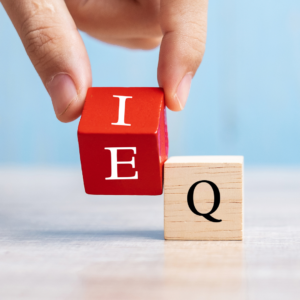By April M. Stewart, Special MWAF Contributor
Do you get frustrated when consumers don’t ‘get’ what you do?
Does it make you feel annoyed, astounded, incredulous, speechless?
There are multiple reasons why they don’t ‘get’ it: no direct contact with the everyday business of agriculture and the you-don’t-know-what-you-don’t-know phenomenon chief among them.
No one likes feeling frustrated. Things just spin in one spot: no forward movement, no answers, no solutions. Information isn’t getting through, messages aren’t received and acted upon. A frustrated farmer talking to a frustrated consumer is going to go about as far as purple ketchup did.
 However, there is one simple skill you can employ to ensure your information and messages go farther and deeper: empathy.
However, there is one simple skill you can employ to ensure your information and messages go farther and deeper: empathy.
Empathy is the ability to share what someone else is feeling. It allows us to understand someone’s perspective and is critical to helping you relate to the people you interact with daily.
President Barack Obama once decried the world’s “empathy deficit,” but learning to be more empathetic is possible: research indicates that brain plasticity (the brain’s ability to modify throughout one’s life) means that even adults can rewire the social circuits of their brain. (Take the Empathy Quotient Test here to see where you fall on the empathy spectrum.)
It can be difficult to feel kindly towards someone who’s opinion seems ridiculously unfounded or blatantly ignorant of established facts. How can you connect to someone on such a deep and personal level? Here are three tips to start honing your empathy skills for more productive (read persuasive) farm to consumer conversations.
- Be more curious: Ask more questions. Develop a mindset of ‘what can I learn here?’ Dive deeper into the experiences, issues, and concerns of the people with whom you’re speaking. Asking questions helps you to get to the core of why someone believes what they do and will help you connect through shared experiences.
- Examine your biases: Don’t think you have any biases? Then you have the Blindspot Bias: the failure to recognize your own cognitive biases. Biases can distort reality and lead to faulty decisions. Most humans struggle with objectivity since our thoughts and decisions are based on our personal experiences and interactions with the world, so to combat your own biases, seek out people’s views by encouraging them to open up and discuss how they feel about an issue. Active listening will help you combat cognitive biases, because when you allow new information in, you’ll have more data with which to create the right delivery framework (i.e., story) for your messages.
- Read, learn, question: Reading, particularly literary fiction, can strengthen your empathy muscles as the story pulls you into the psychology of characters and their relationships. As you muddle through a non-template story, your theory of mind skills are enhanced, which means you are improving your abilities to imagine what might be going on in someone else’s head. Cultivate a growth mindset by being open to learning new things and viewing challenging conversations as an opportunity to improve your understanding of consumers’ concerns. Question opinions and motives with the intent of equipping yourself with the tools to delve deeper into the reasons behind them so you can address concerns with relevant information.
Pausing to put yourself in someone else’s shoes takes a second, but the benefits can last for years.
Want to read more blogs like this one? Click here.




